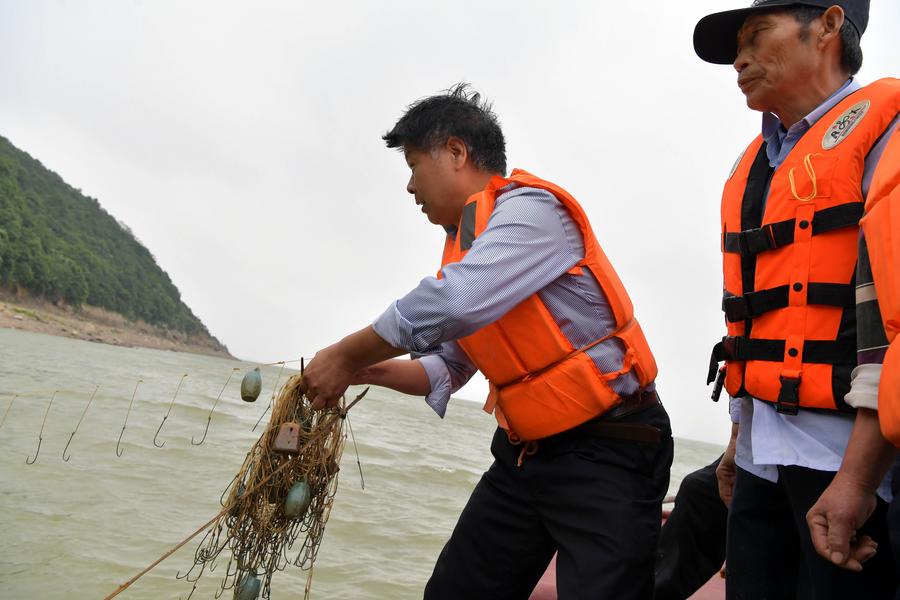Courts tighten noose around illegal fishing
China Daily, December 17, 2024 Adjust font size:

While calling for a sustained crackdown on illegal fishing, China's top court has also urged courts nationwide to prioritize environmental restoration, aiming to provide stronger legal protection for fishery resources.
The Supreme People's Court issued four case studies on Monday to guide courts across the country in their judicial efforts against illegal fishing and to enhance public awareness of environmental protection laws.
"Fishery resources are valuable natural assets that play a critical role in safeguarding ecological security and promoting economic development," the top court stated.
It emphasized that illegal fishing not only directly damages fishery resources but also disrupts biodiversity and ecological balance. In recent years, Chinese courts have intensified their efforts to address related crimes, including illegal fishing and the transportation and sales of aquatic products.
In one disclosed case, a group of defendants was found to have illegally harvested crabs during the fishing ban period from May to August 2021. They then transported the crabs by boat and truck to seafood markets in local areas and cities such as Fuzhou in Fujian province and Shenzhen in Guangdong province.
After an investigation, the Longgang District People's Court in Shenzhen said their actions constituted the crime of illegal fishing of aquatic products. Three harvesting members of the group received prison sentences ranging from 13 to 15 months.
The court noted that they received leniency because the group voluntarily paid 50,000 yuan ($6,869) to repair the aquatic environment they had harmed.
Additionally, a defendant who knowingly sold the illegally caught crabs for profit was sentenced to 13 months in prison and fined 20,000 yuan for concealing the illicit gains.
"This case demonstrates that justice holds every step of the crime accountable," the top court said. "Those involved in illegal fishing and the transportation and sale of aquatic products are all subject to criminal penalties."
The court stressed the importance of combating illegal fishing, noting that it can also endanger lives.
In Renhuai, Guizhou province, a man surnamed Zhang was sentenced to three years in prison after an illegal fishing incident resulted in the death of another man, surnamed Lou.
On August 23, 2020, the two were fishing in a river using a high-voltage device. Lou slipped, came into contact with the electrified equipment and was fatally electrocuted.
"High-voltage electrofishing is an extremely destructive method," the top court said. "It not only severely harms fishery resources and the aquatic environment but also poses significant risks to personal safety and public security."
The court commended the Renhuai court's ruling and called on all courts to maintain a strict stance against such crimes to better protect the aquatic environment and safeguard human lives.
Over the past decade, China has stepped up efforts to protect the environment and biodiversity through the rule of law. It has enacted legislation to strengthen environmental conservation in major river basins such as the Yangtze and Yellow Rivers, and has issued numerous judicial interpretations and guidelines to standardize the handling of related cases.